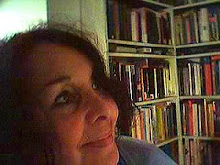NARCISSISTS, NERDS AND NUTTERS
What has the internet ever done for us? The other day I was surfing a poetry site when I came upon this extraordinary passage of purple prose posted in the comments section:
‘Blood only longs for two assholes
To experience the double pleasure
Of dual sodomy and heaven’s golden ladder
Of pee pee filling his pink bag.’
That’s the trouble with the internet. It’s often hard to tell whether you’re on a poetry or a porn site. Speaking of which, when we first went online in 1999, curiosity got the better of me and I wandered onto a couple of porn sites. My wife soon found out and I never did it again, but those two visits supplied me with enough shocking images to haunt my days and nights for years to come. What amazes me is the participating women with their big toes poised seductively behind their ears who make no attempt to hide their faces. (Even prostitutes preserve a certain privacy and anonymity). Someone must know them: their family, friends, acquaintances, colleagues, neighbours. I’ve been scanning the faces of the check-out girls in our local Tesco’s but I haven’t recognized anybody yet, probably because most of this stuff comes from America. It is estimated that there are around a million women staffing the sex industry in the United States. A vast proportion of the World Wide Web is now given over to pornography, perversion and paedophilia. Sir Tim Berners Lee, the British inventor of the internet must be spinning in his swivel chair.
Then there are the so-called suicide sites. Last year in Bridgend, Wales, near to where we live in Swansea, about two dozen young people hanged themselves. Bridgend is an absolutely typical Welsh town. The only thing they had in common was that they were almost all members of social networking sites like Bebo. They even had their own slang for suicide such as ‘checking out’ or ‘catching the bus’. The Bridgend police have tried hard to persuade the public that there is no correlation between the deaths but they are fooling no one. A number of people around the world have even killed themselves whilst actually online, their personal webcams solemnly recording their last moments on planet earth. The extent to which the internet contributes to this phenomenon remains a moot point.
On the positive side, the World Wide Web allows artists, writers and poets (like me) to get our work into the public domain. Given that these days, British publishers only publish people who are already famous, this advantage is not to be underestimated. I’ll never forget a female poetry editor who once rejected my work on the grounds that I ‘wasn’t famous enough.’ If you never publish unknown writers then they never get the chance to become famous. This simple thought is way too sophisticated for most British publishers. Does having your work online help you to become published in other media? I would have to answer in the negative although it certainly helps you to become plagiarised. The struggling writer or poet basically has two choices: give your work away on the internet or keep it in the drawer. Scylla and Charybdis; The devil or the deep blue sea.
The same day I unearthed the bizarre quote about the pink bag, I also took a look at a teenage girl’s poetry blog. The poetry was dire but what struck me more was the total absence of grammar, syntax, spelling and punctuation. That is the thing about the internet. It is almost too democratic. On the credit side, it allows struggling artists, writers and poets to get their work online. On the debit side it attracts hopeless illiterates from every continent like a magnet.
I noticed that Sir Tim Berners Lee recently chaired a conference on the future of the World Wide Web. My response is that ‘It’s far too late, mate. Pandora’s box is wide open and her jar is well and truly broken.’ I personally think that much more work needs to be done on the global impact of the internet. It is the most profound social change for a century and we still haven’t even begun properly to understand it.
Copyright Simon R. Gladdish 2009
Friday 23 January 2009
Subscribe to:
Posts (Atom)
